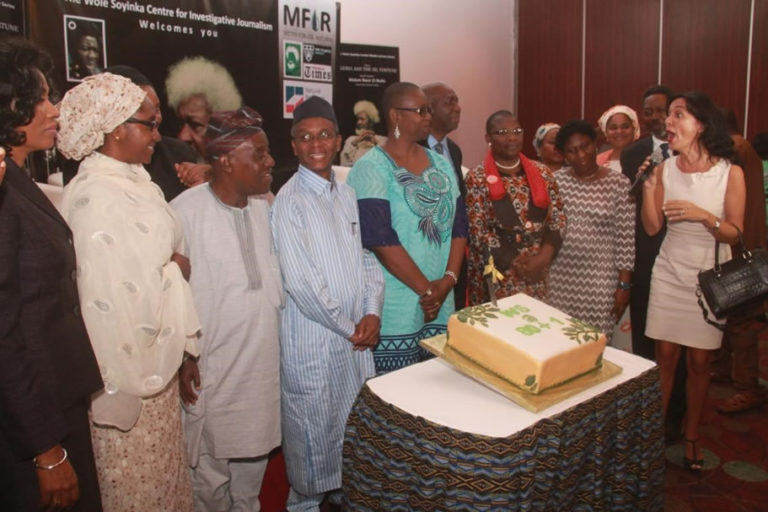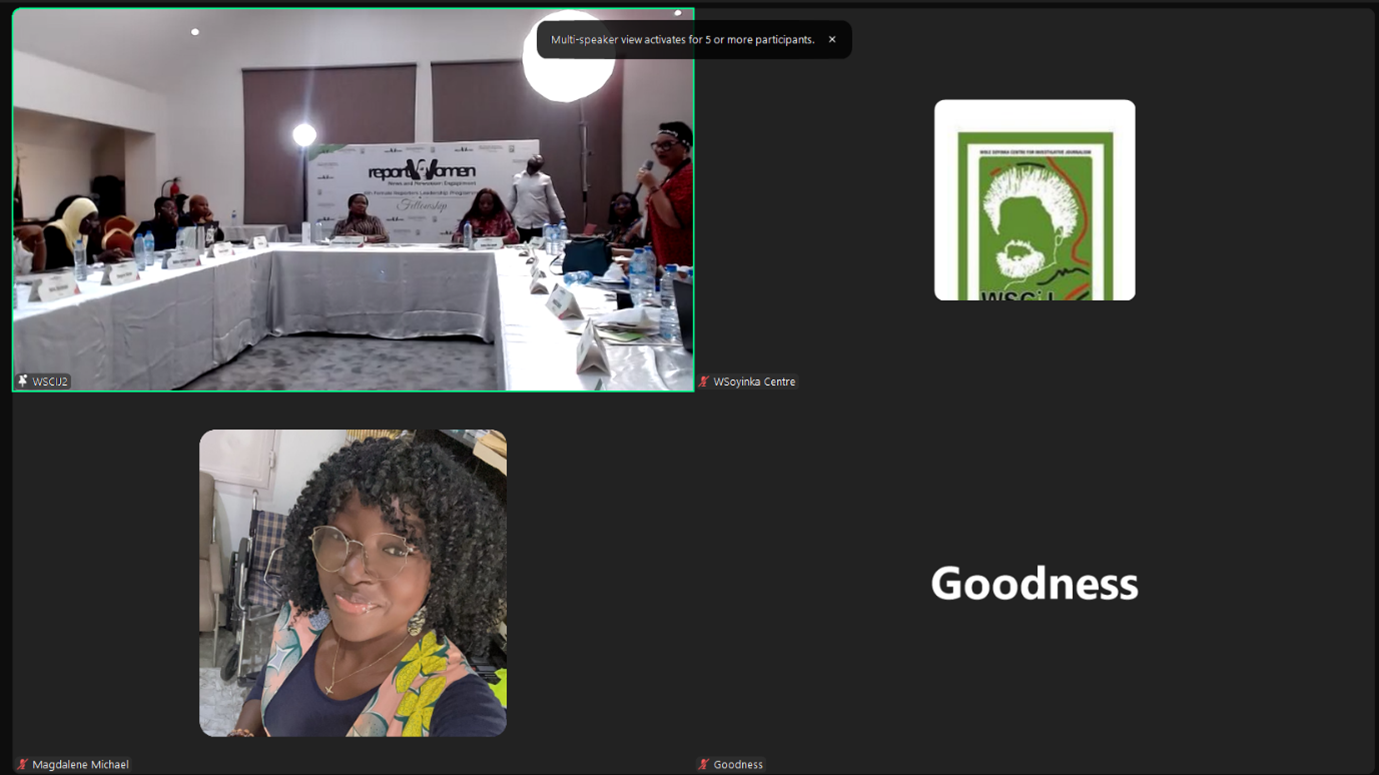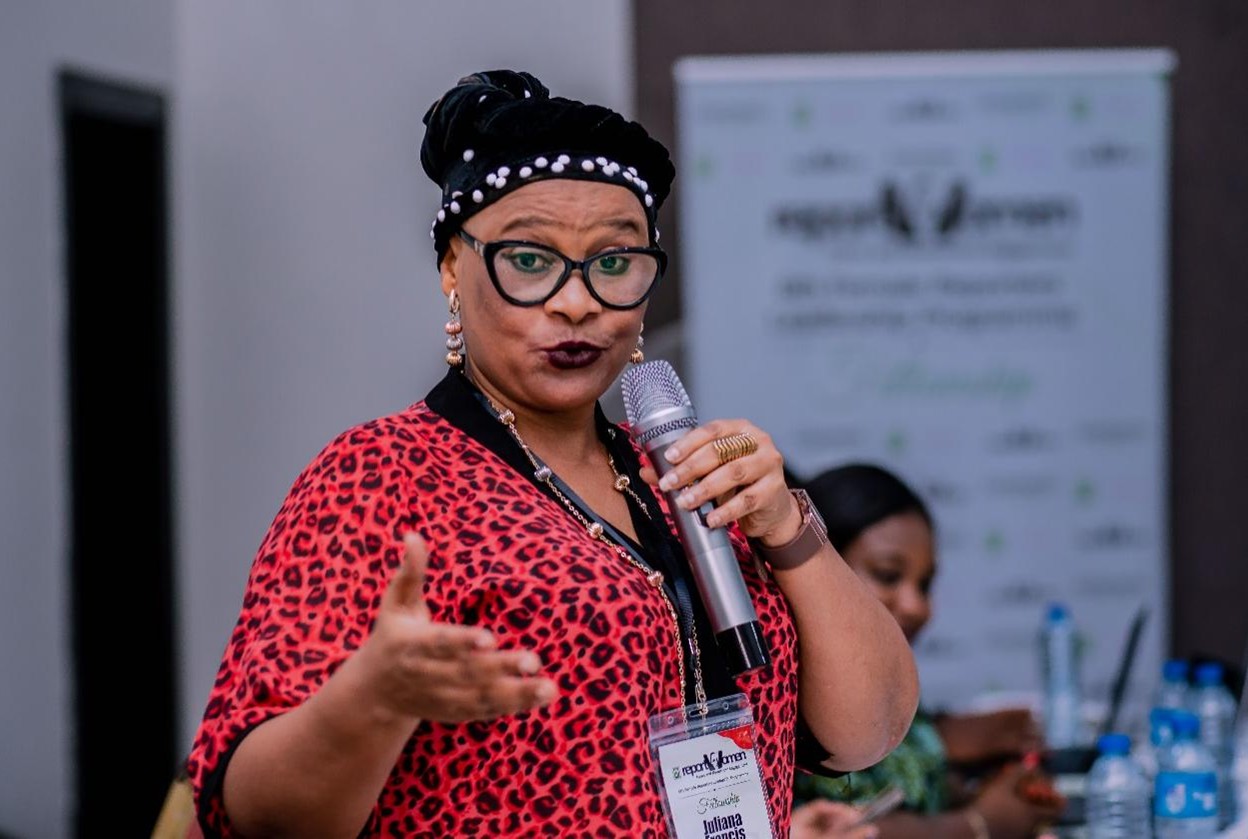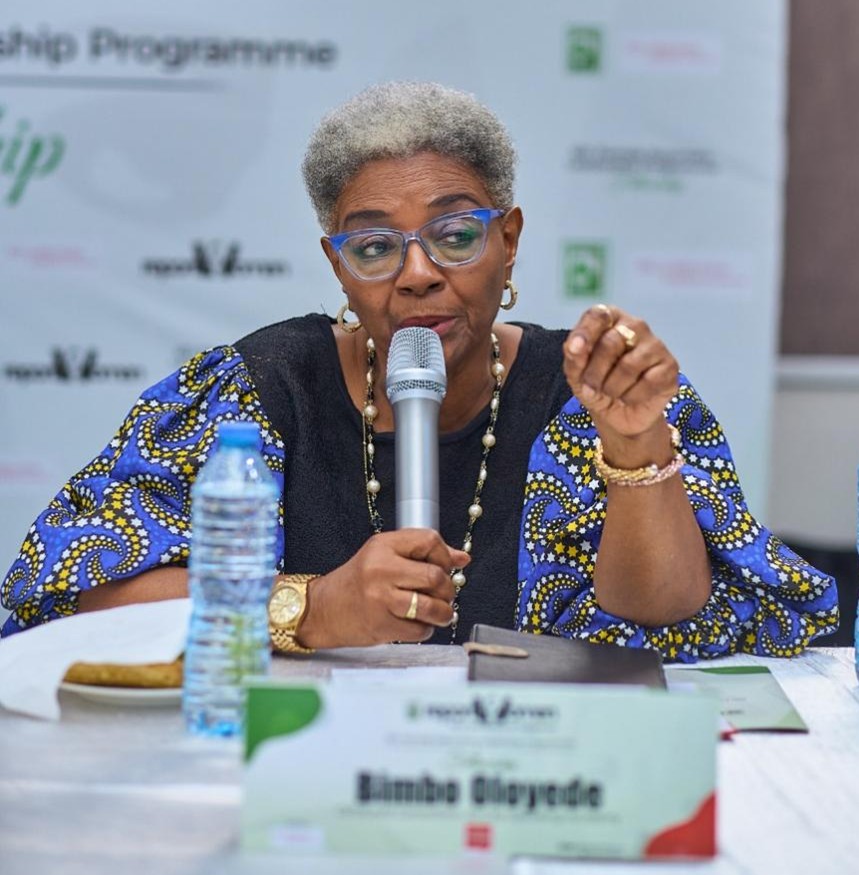Speakers at the inaugural lecture for the Media for Oil Reform Programme launched with the Seventh Wole Soyinka Centre Media Lecture Series held on Monday 13 July 2015 in Abuja have urged the media promote the culture of transparency and accountability in the oil and gas sector in Nigeria through their reports and by raising public debates on issues. The speakers are Nasir El-Rufai, Governor of Kaduna State; Funke Sharon Kasali, former Executive Secretary of Petroleum Equalisation Fund (PEF Management) Board; Deji Haastrup, General Manager, Policy, Government and Public Affairs Department of Chevron Nigeria; and Sam Omatseye, Chair, Editorial Board of The Nation.
In his welcome address, Ropo Sekoni, Chair of the WSCIJ Board, said the theme of the 2015 lecture was most important for the Centre as it should be for all stakeholders in the oil and gas sector as well as the media who need to set the agenda for more responsible management of Nigeria’s oil and gas sector.
El-Rufai, in his speech, declared that Nigeria’s oil is still relevant to the fortune of the country hence requires that it puts structures in place to manage it accordingly. He said, “We need to interrogate how responsibly we have managed that fortune, how diligently we have tried to expand and sustain it and whether having that national fortune has impacted significantly on the fortune of the average Nigerian.” And warned, “…If we persist in indulging our appetite to consume rather than save, import rather than produce domestically, or neglect to prioritise capital investments, we will simply sink deeper into poverty.” On the role of the media in the mix, his comment was that they must use the Freedom of Information Act maximally to ensure that wrong-doing and impropriety are not protected by official secrecy.
In his submission, Deji Haastrup mentioned that International Oil Companies (IOCs), as against popular belief, are not on the other side of the divide but should in fact be included in the reforms that must happen in a host country. He added that IOCs need to be more responsible to their host societies.
Funke Kasali who spoke based on her experience as the immediate past Executive Secretary of the Petroleum Equalisation Fund, said the media needs to ensure continuous debate on oil and gas issues, more than it is doing. She added that the implications for mismanaging Nigeria’s oil sector are diverse and sometimes grave but mismanagement and collapse [of the refineries for instance] has happened because the people that should care hardly do.
The media representative on the panel, Sam Omatseye on his part, stated that Nigeria must begin to think of alternatives to oil and become responsible with the management of its oil and gas as well as all natural resources. In his view, the country needs more enabling laws to ensure institutions, such as the NNPC, do not fail, other than ‘killing’ them as averred to by the main speaker. And the media, he added, must provide the needed oversight for government and all involved in the management of the sector.
Zainab Ahmed, Executive Secretary of the Nigeria Extractive Industries Transparency Initiative (NEITI) who spoke briefly on “Alternatives to oil and the media’s role in ensuring resource governance”. She proposed that the civil society and the media in Nigeria be more actively involved in influencing policies that help to establish a culture of transparency and accountability in the oil and gas sector.
The question-and-answer session followed. Members of the audience fielded questions bordering on the removal of oil subsidy, finding a lasting solution for the NNPC’s sharp practices as well as that of the Nigerian Police, and the importance of publicising reports of audits of the sector.
Kadaria Ahmed presided over the cutting of Professor Wole Soyinka’s 81st birthday cake. She invited all four speakers, Barrister Moremi Soyinka-Onijala (Prof Soyinka’s daughter), representatives of the WSCIJ, and a few other dignitaries present to join in celebrating the global icon.
In his closing remarks, Dauda Garuba appreciated the speakers, the Soyinka family, the Media for Oil Reform (MFOR) partners, media organisations, the NRGI team, the WSCIJ board and staff and the audience for their ardent followership of the Centre. He added that the MFOR inaugurated at the event hopes to see the media put the issues of oil and gas governance in the front-burner towards reform.
Tunji Lardner moderated the lecture which had more than 300 guests including Joop Berkhout, the founding publisher of Spectrum Books; Oby Ezekwesili, former Minister of Education; and Bayo Ojo (SAN), former Attorney General of the Federation, among many others.
The Wole Soyinka Centre for Investigative Journalism has since 2009 held the media lecture series on July 13, as a deliberate effort to honour Prof Soyinka whom the Centre is named after, while drawing attention to current national issues.








